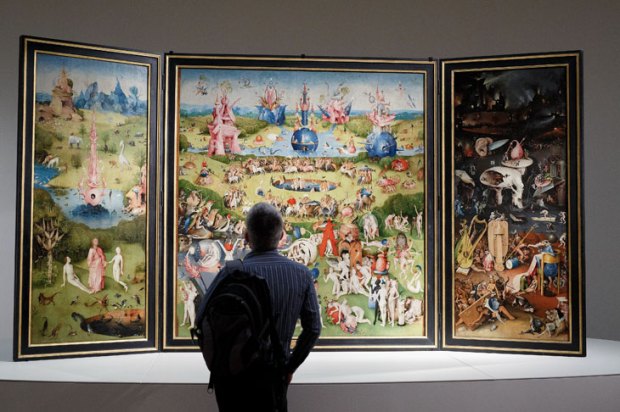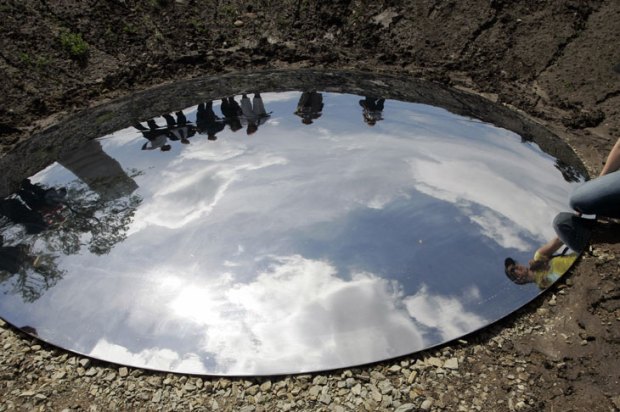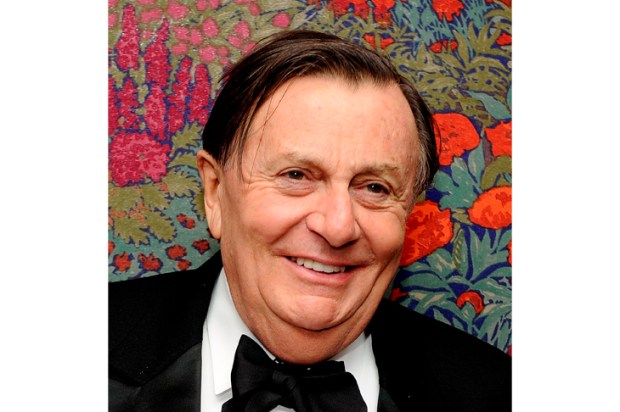The Greeks may fear and loathe Frankfurt as a crass citadel of German capitalism. Not me. It’s Germany’s aviation and financial hub, but my experience of the city is a more modest one. The Australian-style Hotel Adina, just across the Mainz bridge from Max Beckmann’s Städel, which houses Europe’s third largest art collection, has eased me into Germany over the years. My hosts and dear friends Andre Haermeyer, former State Minister, and his wife Tonya Stevens now live here.
My priority during this visit is family business. As a Danziger grandson, I’m here with two great-grandchildren and one great- great-grandson, we’ve come to install Stolperstein (stumbling blocks) outside my grandparents’ home. Bruno and Margarethe Danziger once lived at 31 Ludwigstrasse in Rostock, on the Baltic Coast. They were patriotic Germans. More than 12,000 fellow Jews perished in battle as German soldiers in the first world war. Bruno’s brother was killed at the front. Nor did patriotism save my grandmother. She hid in Berlin’s Charlottenburg with her sister Alma, until she was betrayed in 1943. I like to think there is some solace for their souls that their two sons, ‘Duneera Boy’ Peter, and my father Fred (Kurt Joachim) have led happy and constructive lives as proud Jews and proud Australians.
My dad returned to Rostock in 1988, when it still belonged to the Communist East. His home was still pockmarked by Bomber Harris’s vaguely aimed attacks at the nearby Heinkel aircraft factory. Frankly this visit to Rostock was a bit of a blur. I’d been before to Max-Samuel-Haus, the institution that commemorates the Jews of Mecklenburg. There they had given me the thorough and pitiless Gestapo Behfel (‘bring two sets of underwear, two trousers and only one suitcase’) deporting Bruno Danziger on the July 1942 train to Auschwitz.
Walking to the train for Rostock from our Berlin hotel through the Bebelplatz reminded me why I am there. The State Opera’s renovations nearly obscure it, but the glass memorial marks the spot. This is where, in 1933, the Deutsche Studentenschaft burnt the books of Heinrich Heine, Albert Einstein and Sigmund Freud. A dramatic installation set in the ground consists of empty bookshelves. Like Daniel Libeskind’s Jewish Museum in Berlin, it emphasises the absences from German life.
Most of Ludwigstrasse, the Rostock City Council and local television turn out for the Stolperstein, the stones’ installation. It’s become a widely practised custom. Rabbis had advised me on the Martyrs’ Lamentation to be read on such an occasion. My cousin’s son Ari chants it in Hebrew. My other cousin’s daughter Angie recites it in English. The installation rules say that the stones have to say ‘ermordert’ — ‘murdered’. Later, we go to the ancient Rostock Jewish cemetery. Years ago, good Germans erected a memorial to the 400 fellow citizens from this charming Hanseatic city who were murdered in the Shoah. We say Kaddish, the Hebrew prayer for the departed. We have done, what little can be done.
But I’m also in Germany as a guest at the Berlin Film Festival. Bill Shorten has given me three days off Parliament, and my kind friend Antonio Zeccola shleps me to the movies, sometimes to seven films a day. Antonio explains how he, an Italian immigrant, has built a 100-cinema chain: ‘Sitting on the plane after buying millions of dollars in films I had a fear in the pit of my stomach, will they sell?’ Guts. Zeccola takes me to a wonderful party for the Italian film industry on Berlin’s Kurfürstendamm. I tell my Italian friends that we are celebrating in ‘Casa-Blumenthal’. Mystified, they wonder if I have secret powers. No, I explain that I had just read the Stolperstein outside the door. The 71- and 77-year-old Blumenthals had been dragged from their home in 1941. And ‘ermordert’.
The Grand Budapest Hotel is premièred at the film festival. It is schlock, as is the oligarch-funded portrayal of Chagall. But Diplomatie was memorable, featuring the great French actor Niels Arestrup as General von Choltitz, the last German commander of Paris. Despite an explicit Führerbefehl (Fuhrer’s order) General von Choltitz decided not to do to the Louvre, Notre-Dame and the Eiffel Tower what he had earlier done to Rotterdam and Sebastopol. George Clooney’s film The Monuments Men ran into the predictable — and boring — European anti-Americanism. What a few corny jokes don’t disguise is the story of saving so much European art, including Michelangelo’s sculpture the Bruges Madonna and Jan van Eyck’s altarpiece from the Ghent cathedral. Just as they did in real life on FDR’s direct orders. Cate Blanchett is cool as the French curator secretly cataloguing Nazi plunder.
Between films I sometimes join Antonio who is ensconced in the European Film Market building. After a few days I take his advice and wander next door into the permanent building — Topography of Terror, built along a preserved section of the Berlin wall. A new exhibition, ‘Es Brennt’ — ‘It Burns’ — catalogues the destruction of Germany’s synagogues on Kristallnacht, 9 November 1938. That night my uncle, father and grandfather were incarcerated in concentration camps. Only after some time it dawns on me that Bruno and Margarethe’s grandson is standing in the former headquarters of the SS! As other grandchildren and great-grandchildren and great-great-grandchildren have done before me, I feel like shouting at the Nazi ghosts who stalked this infernal building: ‘We are back.’
Got something to add? Join the discussion and comment below.
Get 10 issues for just $10
Subscribe to The Spectator Australia today for the next 10 magazine issues, plus full online access, for just $10.
Michael Danby is the shadow parliamentary secretary to the leader of the opposition, Bill Shorten, and shadow parliamentary secretary for the arts.
You might disagree with half of it, but you’ll enjoy reading all of it. Try your first month for free, then just $2 a week for the remainder of your first year.













Comments
Don't miss out
Join the conversation with other Spectator Australia readers. Subscribe to leave a comment.
SUBSCRIBEAlready a subscriber? Log in